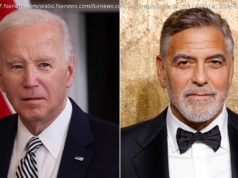 Overkill feels like an understatement when it comes to “ See You Tomorrow ,” a star-spangled, chintz-tinseled dramedy co-written and produced by Wong Kar-wai , featuring Tony Leung Chiu-wai as a barman who moonlights as a love doctor. Though China’s Zhang Jiajia takes billing as writer-director, it’s impossible to miss Wong’s pet themes of nostalgia, unrequited love, and numerology scribbled all over the frame. And yet without the Hong Kong auteur’s usual sense of subtlety, this boozy mix of screechy characters, splashy visuals, and trite tales will likely leave audiences feeling the cinematic equivalent of a hangover.
Overkill feels like an understatement when it comes to “ See You Tomorrow ,” a star-spangled, chintz-tinseled dramedy co-written and produced by Wong Kar-wai , featuring Tony Leung Chiu-wai as a barman who moonlights as a love doctor. Though China’s Zhang Jiajia takes billing as writer-director, it’s impossible to miss Wong’s pet themes of nostalgia, unrequited love, and numerology scribbled all over the frame. And yet without the Hong Kong auteur’s usual sense of subtlety, this boozy mix of screechy characters, splashy visuals, and trite tales will likely leave audiences feeling the cinematic equivalent of a hangover.
Despite dramatically overtaking Matt Damon starrer “The Great Wall” when it first opened, the film has since leveled off at the local box office. In fact, together with Zhang Yimou’s monster blockbuster, it has provoked such a virulent backlash from bloggers and disappointed audiences in China that the state newspaper the People’s Daily published an editorial reprimanding popular online movie review sites for “undermining domestic film industry.”
The film’s flaws begin at the script level: Previously known as the screenwriter on “The Butcher, the Chef, and the Swordsman,” Zhang reportedly went through 118 drafts attempting to adapt his own short story. And while Zhang strains mightily to emulate Wong’s sense of intellectual introspection, his dialogue is full of platitudes and phony feelings. At the same time, obvious references to a number of Wong’s films, along with blatant imitations of comedies co-written by Wong and director Jeff Lau (such as “The Eagle Shooting Heroes” and “Chinese Odyssey 2002”), pale by comparison.
In the film, Chen Mo (Leung) runs a bar in Shanghai nightlife hotspot with buddy Guan Chun (Takeshi Kaneshiro). He’s a self-appointed “ferryman” (also the Chinese name of his bar) who helps people move on after a painful breakup — though he could use the service himself. A flashback to 10 years earlier shows him falling hard for Muzi (Du Juan, “Lost in Hong Kong”), a bartender whose house cocktail “See You Tomorrow” is so lethal even a hooch hound like Chen gets knocked out. In one of the film’s funnier routines, he drinks, falls down the stairs, but keeps hobbling back for more. Just as Muzi warms to him, the narrative stops short, leaving audiences frustrated.
Like many of Wong’s protagonists, everyone in Zhang’s film seems trapped in the past. Guan, formerly an arcade-game champ, once had a crush on Maomao (Sandrine Pinna, “Touch of the Light”), the daughter of a Taiwanese master pancake-chef. Now, after a decade-long absence, she has returned to revive her father’s joint, but has no memory of Guan.
DJ Xiaoyu (Angelababy) has a crush on wasted rocker Ma Li (Cantopop star Eason Chan) which dates back to her tween years, when Ma was still a budding band boy (former K-pop idol Lu Han). In a scenario that defies logic, Ma proposes to longtime girlfriend Jiang Jie (Lynn Hung), who says she’s been waiting for this moment forever, then proceeds to break up with him. To help him get back on his feet, Xiaoyu asks Chen to show her the ropes of being a “ferryman.”
Finally, one gets to see Chen in action using unconventional methods to help clients get over their failed relationships. These exploits should have been played at the start, as lighthearted lead-ins to the main protagonists’ weightier personal backstories. Now that it’s already halfway through the film, they feel more like distractions. By the time more flashbacks reveal what happened to Maomao and Muzi a decade earlier, audiences no longer feel invested in these characters.
As he did with “The Butcher, the Chef and the Swordsman,” Zhang employs an episodic structure, which in this case feels as if several unfinished films have been lumped together. Consistent with current mainland film trends, the director seems to have confused comedy with making a very loud racket. Each of the individual love stories parodies a genre, from culinary film to ’90s Cantopop MV to Japanese “Yankii” (a type of high school hillbilly) subculture.
Leung provides an inordinate amount of voiceover narration, while bringing a laid-back yet playful air to his performance, generating easy chemistry with such diverse personas as the aloof Du Juan and bubbly Angelababy. The other cast members bust their guts to look animated but can’t hide how little they’re invested in the drama.
Though location shooting took place in Nanjing and Qinghai, the Shanghai that appears onscreen is so brightly lit and saturated with color that it feels like an imaginary place created via visual effects. Despite its similarity to the cafe in “My Blueberry Nights,” the bar never comes alive as a character in its own right. Peter Pao and Cao Yu, usually masterful DPs, seem to overdose on stylized camera tricks, to unsightly effect, while Alfred Yau’s production design and William Chang’s costumes create an eclectic clutter. Nathaniel Mechaly’s score is a repetitive playlist of retro-Cantopop songs, mostly by Hong Kong band Beyond and Eason Chan.






